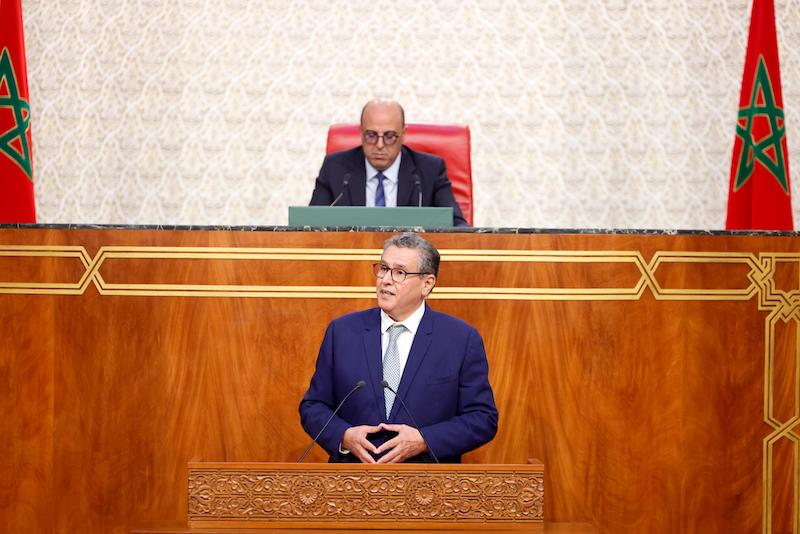Morocco’s $13 billion investment charter sparks industrial transformation

Morocco’s Prime Minister Aziz Akhannouch has highlighted the transformative impact of the nation’s new Investment Charter, which has driven a significant increase in industrial investment since its implementation.
Speaking during a parliamentary session on national industrial policy, Akhannouch revealed that the total capital for approved industrial projects soared to 140 billion dirhams ($13.58 billion) between May 2023 and November 2024, compared to just 13 billion dirhams ($1.26 billion) under the previous framework.
The Investment Charter, which came into force in late 2022, is designed to enhance Morocco’s industrial competitiveness by providing a robust legislative and regulatory framework.
It aims to attract both domestic and international investors to key sectors, offering financial and geographic incentives to reduce costs and improve the business climate.
“Equity across regions remains a cornerstone of our strategy,” Akhannouch emphasized, adding that the charter ensures all areas of the country benefit from industrial development.
The policy also prioritizes innovation and advanced technology, focusing on vital industries such as electronics, automotive, aviation, artificial intelligence, renewable energy, green hydrogen, and biotechnology.
To streamline investment processes, the Moroccan government has introduced reforms, including the digitization of administrative procedures through the “CRI-Invest” platform and the elimination of 45% of the documentation previously required.
These changes aim to simplify land mobilization, permitting, and licensing procedures.
Additionally, Regional Investment Centers (CRI) have been restructured, allowing projects valued between 50 and 250 million dirhams ($4.85 million to $24.25 million) to be processed at the regional level for greater efficiency.
Akhannouch announced further support for small and medium-sized enterprises (SMEs), essential for job creation and economic dynamism. A new legal framework is being finalized to bolster these businesses.
As part of broader industrial goals, Morocco is advancing renewable energy and green hydrogen initiatives, targeting 52% renewable energy in its power mix by 2030.
Investments in high-capacity electric infrastructure and stable electricity pricing are also underway, aligning with the “Morocco Digital 2030” strategy, which seeks to create 240,000 jobs and attract $1.07 billion in digital technology investments.
Through partnerships, including a collaboration with the General Confederation of Moroccan Enterprises (CGEM), 108 industrial projects valued at 615 million dirhams ($60 million) are set to receive funding, with the state contributing 264 million dirhams ($25.6 million).
These initiatives reinforce Morocco’s position as a competitive global investment destination while fostering sustainable industrial growth and innovation.
About The Author
dailymailafric
I am an avid African news observer, and an active member of Daily Mail Africa.
I’m Passionate about staying informed on diverse topics across the continent,
I actively contribute to publishing on political, economic and cultural developments in Africa.



